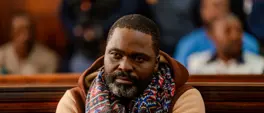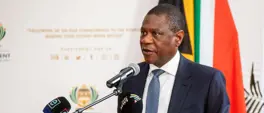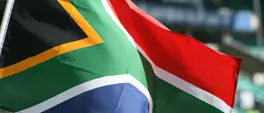BUSANI NGCAWENI: Woza Durban July, let's get on with conspicuous consumption
Busani Ngcaweni
6 July 2019 | 10:00What did they expect, really? The VDJ is after all characterised by sexual indiscretions and conspicuous consumption, writes Busani Ngcaweni.
This reflection was never meant to canonise the Vodacom Durban July, or the VDJ as it is popularly known.
The object was to locate its apparent popularity in the broader context of the unfolding crises of consumption and production especially as it affects black people in South Africa.
These are sensitive matters for some hence one generally avoids venturing into such social commentary especially where sexual indiscretions and illicit financial flows are involved. Well, it all took a different turn following a frantic note from a female acquaintance lamenting how her friend had been cheated by her partner in the week leading to Durban July a few years ago.
Desperate to save what remains of their union, the fellow turned to friends asking them to raise apology decibels to the annoyed wife - lamenting diversion of scarce family resources to entertain a blessee only two years older than their 18-year matriculant daughter. She got designer clothes for both day and evening events.
As the spoof goes, she's got Brazilian human hair yet she doesn't have a passport and doesn't know the capital city of Brazil (hope you see the oxymoron).
What did they expect really? The VDJ is after all characterized by sexual indiscretions and conspicuous consumption. It is not a YMCA convention. No one goes there alone, not even our LGBTI friends, brothers and sisters. It’s white compatriots who are likely taking their spouses or regular partners there.
Borrowing from another evolving treatise on "Africa and the Crises of Consumption and Production", I argue that the VDJ, at a sub-national level, best represents the crises unfolding before us.
Brief elaboration: by crisis of production we mean Africans are not producing enough food, consumer and capital goods, services and children. We rely on imports for our essential needs as well as capital goods.
For many reasons in the realms of political economy and rampant imperialism (disguised as globalisation), our productive capacity continues to diminish as the unfavourable terms of trade continue to shift production away from the continent. With such vast acres of arable land, we consume food products from North America genetically modified by Monsanto with prices set at the Chicago exchange.
It is a matter of public record that Africans have a negative fertility incidence - although neoliberal scholarship would have us believe that too many girls are having too many children. Evidence suggests otherwise. As education, urbanisation and labour market participation levels rise in Africa, fertility rates are declining; unless the question is who is getting pregnant.
As for consumption, look no further than what we eat and spend money on. We consume too many imports and products we do not need physiologically and materially. As new American franchises open in Johannesburg, we scrabble to beat the queue for burgers and deadly doughnuts.
The less said about politicians who shout 'down with white monopoly capital' whilst flaunting Stellenbosch-owned Louis Vuitton and Montblanc, the better. For it is all part of the ideological schizophrenia characterising our polity.
In the contemporary moment, the VDJ demonstrates the internal logical of rampant capitalism characterised by conspicuous consumption and all the misdemeanours that accompany it. How morality can be expected from an inherently immoral system defies logic.
The whole razzmatazz is about fearfokol consumption, casual sex and flaunting. After all, what use will be of the selfies at the race course without its core utility - narcissistic self-promotion which benefits the same monopoly capital we yearn for its Armageddon.
Ask everyone who goes to that spectacle, at best it represents five symbols of coloniality or western modernity as referred to in popular parlance.
1. Beauty: although some among the attendees are generally not easy on the eye and wear nasty outfits, people still boast and parade 'beauty', much like the competing horses. Check in with the fashion police in the tabloid newsrooms and be the witness! Social media has become a Dutch Disease for our people, a curse of note. It has created space for us exaggerate our notions of beauty and sexuality. All to no meaningful consequence.
2. Sexual indiscretions: most of the postmortems of the Durban July are about who slept with who, how I got the visa (permission from the spouse/partner), who was caught in the act, the 'new release' etc. Believe me, there'll be no cliffhangers in VDJ stories without such sexual escapades. At least this is the talk of the town amongst macho mobile men money, otherwise now known as blessers. You pay premium mavuso at VDJ, not airtime and Kulula flight tickets to Cape Town.
3. Liquor: what would the VDJ be without floods of waters of dizziness in VIP marquees, Florida Road, KwaMax, Eyadini, Tashas and other venues of after parties featuring copious amounts of single malts and French bubble. You wouldn't be serious about consolidating your brand position in the growing middle class market without splashing millions, promoting single malts whiskeys and French bubble at this mid-winter extravaganza. Wait: even my hood, Inanda, has a sold-out Under the Moon drinking hole that olders in the community equate to Staccato Restaurant and Night Club where the late national key point, Brenda Fassie met Nhlanhla Mbambo in the mid-80s.
4. Personality cults: these have become a feature of the Durban July. What would the event be without my homeboy Mabheleni Ntuli, the original blesser and Khanyi Mbau, the flag bearer of blessees! Well, even she gets lighter by the day, Khanyi is fading now. Zodwa WaBantu is here, redefining and cashing in on our insatiable appetite for nudity.
Pity that the organisers do not really recognise and reward the value of personalities who contribute vastly to the legend this event has become. Otherwise, we would now have a wall of fame for blessers and blessees whose iconography is built around mega-events like the Durban July, SA Music Awards and the Cape Town's J&B Met.
5. Patriarchy: everything about the event undermines the true value of women. They are objectified and reduced to beauty trophies for the enthrallment of men who abuse their financial position to further patriarchy. Yes, we have a few paid models and waitresses but the majority of women there fall prey to masculinity and capitalism which are intersectionally linked. As for safe sex and the risk of HIV infection, the less said the better.
All these demonstrate an unprecedented crisis of identity still haunting the previously oppressed raging along with the struggle for recognition.
We shouldn't be surprised really for we have already noted that the VDJ demonstrates the highest form of the poverty of internal logic (and racial nature) of capitalism in South Africa today.
It exposes modernist capture with Euro-America culture, subjecting us to conspicuous consumption on the terms defined by the cultural majority (white capital) over the political majority (black people). People go there to be seen and to spend money (they don't have). Someone quipped that some among us would spend in one weekend what we would have earned in four months.
The stakes are always high in fashion and partying departments. Liquor flows endlessly. Even some politicians have become regulars at the races, competing with care-free celebrities who profit from what I have come to call Kardashdianomics - a recent phenomenon where people make money from living their lives, documenting and selling it to hungry reality TV viewers.
By the way fellas, besides retailers, hotels and bottle stores scoring big, which horse won last year, and what was the prize money?
Take a deep honest look. Capitalist capture is all over us, much like it has captured the state.
We cry radical economic transformation, and yet we volunteer ourselves as purveyors colonial culture left behind by the conquering British imperialists who started the union of money and horses called the Durban July Handicap and miraculously went on to handicap themselves by voting to exit the European Union decades later.
Woza Durban July, the blessers are here, condoms are sold out, so will morning after pills on Monday. Let the good times roll!
_Busani Ngcaweni is co-editor of 'We are No Longer at Ease: The Struggle for #FeesMustFall'. Follow him on Twitter: @busani_ngcaweni_















